Dear Mrs. Wei Wei
by Charles Lowe
I am a graduate student in my mid thirties living in the U.S. with a dining common worker from a district shaped like a dumpling in the north of China and have, for some time, been worried – even before she told me her ex wanted an interview with me before the two of us could get married, an announcement greatly troubling as I was unaware that I was both a candidate for marriage and a candidate to marry a woman who was still seeking advice from her ex.
“You afraid to meet?” Mrs. Wei Wei asked.
“Of course not, I’m busy correcting the first batch of papers,” I said, “on the most significant event in a student’s life.”
“Don’t worry,” Mrs. Wei Wei smiled.
“I’m not,” I smiled. “I know who Mrs. Wei Wei is,” which was true. Mrs. Wei Wei was the pen name my possibly soon-to-be wife took when she wrote an advice column for The Tianjin Daily. Her readers also called her the Good or Wise Auntie or the Queen of Dumplings on account of the culinary references spicing up her column.
The first I saw of the Good or Wise Auntie of Tianjin was inside an album Mrs. Wei Wei showed me on our second date. The album was moldy from having been stored beneath a bed she and her sister had shared. It had a bent corner either from its journey from the Machang District to graduate housing in UMASS or from a smaller yet less well insulated travel cross town from campus housing to a sublet, which she shared with a Born Again couple until she moved in with me.
Each plastic envelope held a photo. The first showed Mrs. Wei Wei with her mother next to a Ferris wheel near the Hai River. Mrs. Wei Wei’s mother had broad shoulders and a face touched by sunlight mixed with gravelly soot. An inky swirl overlapped the thin eyelids of the Good or Wise Auntie enough so that I didn’t recognize the Queen of Dumplings until I spotted a smile surfacing on the edges of her lips. The second flap was empty. The third showed Mrs. Wei Wei in a gray factory uniform. A line looking like a thread was stuck to the edge of one sleeve. Mrs. Wei Wei’s roommate at college was in a fourth posing in front of a mirror, but flipping through the other pages I did not find evidence of the man I was to replace, assuming Mrs. Wei Wei’s choice met with the first Mr. Wei Wei’s approval.
Of course, my possible future wife had not always been Mrs. Wei Wei. Her preparation for the role started one Friday evening when at age six she was entrusted with pinching together the ends of the rice dumpling wrappers: a task which afforded her the chance to listen in on the advice ladled out in equal portions to her relatives in Tianjin, Shenzhen, as well as a few in a beach suburb of LA. While slicing the pork and scallions as well as preparing the vinegar and soy sauce, her Auntie espoused on the medical efficacy of ginger to heal a romantic wound. Her mother, sister, and uncle took turns molding the dough from scratch while each furnished a point on the significance of good planning: the principle applied in equal measure to the use of yeast in helping the rice dough rise and to the employment of favors, guanxi, to facilitate a deal with a municipal government official.
But while her mom, sis, and uncle as well as auntie all had a significant impact on her columns, her elder cousin was the most profound influence. The cousin had risen to be the Assistant Loan Office at HSBC, a noted criminal enterprise in the district, and had acquired over a steady climb a well-measured understanding over how to prepare advice that could burn off a tongue. Her favorite piece was THE TALLEST BLADE OF GRASS HAS ONLY ONE DESTINY. The cousin made a slicing motion down her right breast so as to complete the thought before adding extra ginger for mom’s but not uncle’s dipping sauce.
Mrs. Wei Wei recalled the heaps of ginger that scorched her cousin’s sauce when she was biking in late March during the windstorm season when a curtain of soot and dust descended onto Tianjin. Mrs. Wei Wei was a cub reporter and was weaving out of traffic: one hand on the loose handlebar of her used Schwinn. The other hand she used to push aside a curtain blanketing her eyelids when a truck, carrying used tires, hit a motorized cycle to Mrs. Wei Wei’s right, crushing one spoke but leaving the cyclist undamaged. Mrs. Wei Wei considered then asking the chief editor for a post that did not involve chasing down factory managers on a used Schwinn with loosely attached handlebars throughout the Nankai and Machang Districts. But she remembered the destiny of a tall grass blade and pedaled through a few more storms none so severe as the first. After swerving one time around an accident committed by a cute Lada, Mrs. Wei Wei returned to a washroom where as the sole woman on staff, she felt entitled to a bit of privacy.
The news she heard, while dislodging the mix of soot, dust, and gravel from her right pant leg, was not especially memorable. The present Mrs. Wei Wei was toasting the chief editor for his generosity in agreeing to let the advice columnist transfer to the business page. The six preceding Mrs. Wei Wei’s had all managed in the course of six months to transition out of the Health & Science page to departments as varied as travel and hygiene. None of these gentlemen wanted to remain a good or wise auntie, apportioning out common or uncommon sense to the teenage and twenty something women who composed Mrs. Wei Wei’s primary audience. “But I am thinking,” Mrs. Wei Wei added in a voice soft enough not to wake her Born Again housemates, “maybe my elder cousin is wrong. I know that sounds ridiculous. A Junior Loan Officer from HSBC wrong, but anyway to be the taller blade may be worth the chance. I am taller than the average girl in the Machang and Nankai Districts and am tired of pedaling through a thick mix of soot and gravel.
“Without much preparation, I rush out the washroom to offer the services of a family of Mrs. Wei Wei’s. The Chief Editor pretends not to see the toilet paper, which I later find clings to my black corduroys, and declares ‘you can be Mrs. Wei Wei for now.’
“Okay, the edges of my dry lips tighten. I am still a reporter. So I still have to drive through a mix of soot and gravel to discover a factory that through its workers’ collective efforts has overtaken a counterpart in Liverpool, England. I clutch onto the handlebars that have loosened again on Race Course Avenue and arrive at mommy’s where I take over the mixing duties while Miss HSBC (my cus’ nickname) offers help on how to inflate travel receipts, the critical attribute of a junior loan officer, so I cannot be Mrs. Wei Wei until 10 when I return to our apartment. The husband isn’t back from the library—and can start the advice. The girl wants a hukou.”
“What’s that?” I asked.
“A residence permit, they’re impossible for a country girl from Henan to get unless she bonds with a fellow with legal status. So that’s what I tell her. Find a legal boy. Better if he’s a blade of grass that’s slightly confused. Fix yourself on him. Don’t let go. After signing off for the first time as Mrs. Wei Wei, I feel reasonably satisfied resting on my first husband’s leathery skin, his breathing as if through blades of evenly sliced grass, when I see I may be Mrs. Wei Wei only for a short time. What I will be after? A letter arrives. The note is on a slender sheaf of rice paper.”
Mrs. Wei Wei showed me the rice paper, which was slight enough to crumple up in my palms.
Dear Mrs. Wei Wei, for the past 6 ms, my husband reads to me the dream of the red mansions until I want to get big just to close his thick lower lip. Still my belly is a wide-open valley. We’re living with his Mom who complains she’s had to give up her bed, no reason. Mom tests the mattress. The blanket does have firm corners. Still I haven’t blown up. Am joyless. Mom claims I’m defective and wants to return me to my real mom, but my real mom claims it’s the dumplings my husband’s elder sis’s fed me and has taken to bringing over stinky tofu until my nose blocks up. I’m dead. Mom wants best bed back. What should do?
Lost and Possibly Less a Bed
Mrs. Wei Wei was beaming at me, the ink from the rice paper bleeding into her fingers. “I’m confused,” I said.
“Simple,” Mrs. Wei Wei kept beaming. “The girl is living with her husband’s parents. They’ve given her their bed and hope she can produce a grandson for them as soon as possible.”
“And,” I added, “despite heavy doses of classical literature and traditional cuisine, Ms. Lost and Possibly Less a Bed hasn’t become pregnant, and her in-laws are blaming her.”
“Exactly,” Mrs. Wei Wei tightened the corners of her lips.
“What solution did the Queen of Dumplings serve up?” I smiled.
“Break the skin,” she said, completing her advice with the same slicing motion as her elder cousin had perfected.
“Really,” I took the letter from Mrs. Wei Wei’s hand.
“She’s not been…you know, penetrated.”
“That can happen?”
“Sure. Chinese boys are idiots. We’re all been married to one. The mom is the true problem. She’s going to require physical evidence.”
Mrs. Wei Wei took the letter from my hand.
Dear Lost and Possibly Less a Bed,
Do not worry. Your problem calls for a simple recipe. Be sure to have the right grip. Put too much inside the wrapper. The dumpling falls apart. Too little mix. It looks like a dead roach. Here’s what you do. Find the fold of skin. If you need help, ask a local auntie. Gently nudge the fold of skin with the tip of a broom handle. If there’s blood, you know the answer. Here’s the answer. Kindly keep a sample hidden in a folded corner of the sheet on your side. Shut the lights off. Second rule. Men want to believe they are in control. Keep the lights off. Mrs. Wei Wei has learnt that destiny through her many experiences, preparing dumplings and salted river fish. After your Mr. Wei Wei starts on top of you, grip his shoulders like you’re holding onto the blade of a butcher’s knife. Guide him over you. Let him believe he is in control, that you are following him, not the other way around. Never scream. He’ll hear his own screams anyhow. When your Mr. Wei Wei is asleep, pour a few droplets of blood near the bottom corner of the bed. Left or right, doesn’t matter? If your mom’s got a maid, let that small potato remove the sheet. If she doesn’t, you do. Make sure to leave the sheet out. Your mom will see the answer. She’ll let you rest comfortably on the best bed. She may fold the top sheet. Soon you’ll be throwing up in a squat down like any other woman. You will be happy.
Yours Mrs. Wei Wei
Mrs. Wei Wei took out a photo. The baby appeared to be a blurry dumpling except the eyes, which were directed at my stomach. “Lost and Possibly Less a Bed has a beautiful baby,” I said.
“That’s Sunny Smile’s,” Mrs. Wei Wei said. “I get about one snap a week. It seems like every countryside girl with a proper hukou in the Machang and Nankai Districts is applying the end of a broom handle.”
“You’re sure that happened?” I asked.
“Truly,” Mrs. Wei Wei beamed. “When these countryside girls arrive in Tianjin, no aunties or moms are around to give them advice. They only have Mrs. Wei Wei. Some of them can’t read, but there’s always a crowd in front of the bulletin board. I use to watch them huddled up, reading me in the park. I really love it and would’ve stayed Mrs. Wei Wei if my husband hadn’t caught me with the Assistant Editor. That doesn’t end it, but it does start the end.”
“Mrs. Wei Wei had an affair,” I asked.
“Doesn’t matter,” Mrs. Wei Wei shook her head. “My first husband believes I have an affair, and I do let the frog-eyed assistant call me to his office every 3 on Friday afternoon.. His nickname is Frog Eyes, but I’m not a Junior Loan Officer at HSBC! I’m the good or wise auntie and patiently listen to Frog Eyes complain about his wife. She’s from Szechuan and very small in size, so understandably, the short girl floods the skin of a river fish with bits of hot peppercorns while everybody knows you use a little salt, which you can hide with snowflake beer. ‘True enough,’ Frog Eyes says with a high squeak, ‘you want some real Tianjinese fish flavored with a mild dash of ginger.’
“His office lacks an open window, so I go along: what else can a Queen of Dumplings do? He doesn’t order fish. We have fried dumplings: the edges burnt. With green tea, lots of the brown leaves getting caught between my teeth, so I tell him quick. I say, my husband is waiting for me (he’s not). Frog Eyes says he understands and starts following me to my apartment even if our fifth floor faces a post office that is on three concrete columns that are chipped like the wok my mom gave to me as a wedding present.
“Frog Eyes tears up, explaining how his short wife once adds salt instead of spicy peppercorn but way over so even the delightful taste of snowflake can’t hide the grains. I rush up the stairs, two at a time, in the shoes Miss HSBC lends me. They’re one size too small, my feet shaking so that though the guy reaches below my flat chest, he strides ahead of me, slowing down enough to relay the time his mother-in-law visits. His short wife truly burns off the old bitch’s tongue with some vinegar wine when we reach the door of my apartment, which I open a little: figuring to keep Frog Eyes out and me in when Frog Eyes falls against the door, his right shoulder scuffing up the thin wood I have scrubbed that morning—and am surprised then to see my first husband turn partway from a bookcase we keep standing with two slender metal poles.
“My first lets his black-framed glasses slope down the bridge of his nose. He has thin wrinkles which deepen along his brow. His eyes are sunk into his skull, his eyebrows look about to vanish.
“I try explaining the exact circumstances starting with the wrestling match with my immediate superior but stop at the point when my feet shake against the wooden stair. No one’s listening. Frog Eyes I guess decides spicy peppercorns aren’t a bad way to scorch a tongue. My first has also fled towards his mother’s villa on Race Course Avenue, though unlike Frog Eye’s wife, the fish his Red Mom serves is heavily salted.
“In any case, I was thinking his Red Mom must be slicing me up like I was a piece of ginger. His Red Mom, coming from a pure Red family and treats me like I am from the black class: which I am, my great-grandfather growing a li of rice in Suzhou, though that fellow loses the small plot in a mahjong game. Anyways, our family owns property three generations back. Hers doesn’t, so whenever Red Mom speaks to her Black Class Daughter, Red Mom makes the mix like an interview, the questions stiff enough so a black class daughter can dust them in midair.
“I make the half hour travel in five, weaving through a wave of bikes, but my first is already behind Red Mom’s custom made door. It has two iron sheets and a turtle cut into its bronze skin. I try shouting the name of her red son into the turtle’s downturned mouth, Shen! No answer. I say, Red Mom, please forgive. This time I look at the door handle which is shaped like a dislocated thumb. Still no answer, and put my fist through the part of the door just below the turtle’s shell until my fist bleeds into the part between the dislocated thumb and the turtle’s downward smile. No answer again. I try all over, figuring I only have to press some more like I’m peddling down Race Course Avenue: one hand gripping the handlebar, the other pushing through a mix of soot and gravelly dust. No answer, I put my head down on the walkway leading to my Red Mom’s four-floor house. The cobblestones feel cold and smooth—when my black class mom digs her fingernails into her younger daughter’s shoulder. After, drags that daughter back to the daughter and her husband’s fifth-floor apartment next to the three-legged post office. The first Mr. Wei Wei doesn’t return for another week.”
Dear Mrs. Wei Wei,
I received a note once. The note was signed G.B., the initials of my about-to-become ex. The envelope lacked sufficient postage but was meticulously packed with the collection of letters I posted to G.B. over the five years we were together.
“It’s over,” my now ex-girlfriend put down, the ‘o’ and ‘e’ curved in a precise manner, though the ‘t’ had a ridge squiggling onto the blue lines of the perfumed paper.
I am still hurt even though I’m about to be marry another, assuming I can gain her ex’s approval. But I was starting graduate school, and, as you know, when you’re beginning a new phase, it’s natural to put off painful questions such as why did G.B. affix insufficient postage to an envelope containing all my love letters? Was it a standard passive aggressive maneuver? Or was she careless?
“Are you curious?” a co-worker asked at the beginning of an overnight shift at a group home serving catatonic adults including the staff.
“I have a friend from my home. She’s tall like you,” she added, “and reads books—like you. She’s a writer: only she’s been paid. Are you interested?”
The co-worker looked at me.
I didn’t answer and showed up on time at Bonducci’s, a café facing the Amherst Commons. The first thing I noticed. Your face was tilted at an awkward angle. Your hair was dotted with gray sparks. Please don’t take this wrong, but I didn’t find you attractive. I found you pleasant enough. You had a nice smile, the corners of your lips tightening ever so much, but you didn’t say much. I thought your English wasn’t very good and wondered what we’d have to talk about if we ever were alone.
I went back to work an overnight shift at the group home. I hadn’t been on a date for seven years and was bored and overlooked my fears. I called you. “Do I want jiaozi, fried dumplings?” You asked.
“I’m a vegetarian,” I said.
“Some Taoist monks in my district have the same problem.”
“You have an understanding nature,” I said and showed up on your doorstep with a bottle of juicy juice.
The door was open. I walked in. You were stir-frying bits of pork in a chipped wok. I put down the orangey tangerine beverage and watched you prepare the pork and the tofu mixes while applying the bottom of your palm to flatten a hunk of rice flour dough. I picked up an Advocate and started skimming the classifieds for a used Schwinn. We were both quiet like we’d been married for some time and had run out of things to say. You put a bowl of dumplings in front of me and told me to go ahead, but we weren’t that married, and I waited for you to finish off the string bean and onion stir-fry before I tried to balance an underfed dumpling on a chopstick. The dumpling fell apart. You asked me if I wanted a spoon. I said I could do without but couldn’t.
You took the chopsticks from my hands, lifting the rice flour wrapper to my lips. My head was tilted forward. My mouth was open. I was hungry. You put the wrapper closer. I swallowed and felt the shreds of tofu catch the back of my throat. The shards of ginger burned my tongue. My eyes filled with tears, but after a while, I did grow used to balancing the mix of ginger and tofu on the tip of my tongue. I didn’t say another word, and when you got up, I followed you down a narrow hallway past the door of your bedroom. On the edge of your night table was a matted photo showing a couple. The man smiled, appearing to offer a hunk of ginger. You put the frame down before turning off the lights and digging your fingernails into my shoulder blade.
You moved into my apartment a few weeks later and after several months more, I decided to stalk your ex. That seemed the reasonable course. He knew I was a candidate for marriage before I did, so I wanted to know more about him. Besides I was curious, and you did tell me he lived on the 12th floor of the library where the comp lit collection was stored. There was a line of cubicles, but none of them had any windows facing out onto the floor, so he could have been there. I didn’t know and went to the grad lounge where a few students were chatting across the front counter. None matched your description, so I had the time to write down some notes, but when it came to finishing the letter, I realized I didn’t have a penname. All your authors had names, summing up their circumstance in a painful yet amusing manner.
I waited for Mr. Wei Wei to assign me one.
* * *
Mr. Wei Wei did not return from the villa on Race Course until a week after Mrs. Wei Wei tried to put her fist through a custom made door and discovered her fist could bleed. After that, the good or wise auntie stopped coming to The Tianjin Daily. Frog Eyes might have felt a twinge of guilt and had the security guard carry over the sheaves of letters, which Mrs. Wei Wei used for a second tablecloth. Mr. Wei Wei became interested in one piece. It had a charcoal mark obscuring one corner and was from A Daughter Pining for Foreign Schooling. The Daughter had wanted to go to graduate school in the States, but her mom and dad had divorced, and the mom had wanted her only child close to home.
“He told the daughter to grab the opportunity?” I said.
Mrs. Wei Wei took out his note from behind a photo of her ex-roommate sitting in front of a mirror. The rice paper contained finely curved characters, which Mrs. Wei Wei put into enough words so that I could understand.
Dear Daughter Pining for Foreign Schools,
Mrs. Wei Wei has learnt through hard experience the cost of disobeying your mom. Forget the offer letter.
Yours truly, M.W.W.
“A few months later he gets a fellowship in the States,” Mrs. Wei Wei added. “I don’t know he’s applied.”
“You could have stayed Mrs. Wei Wei?” I said, unfolding an edge of her blanket.
“I think about it for a few months. He goes over first. I know he doesn’t want me. He pens his notes on the back of postcards. Each note is briefer than the last. Finally, he puts one on the back a snapshot of a night table. The table is cheap like a black class girl I’m thinking, but Miss HSBC is advising me on how a wife can maintain a bookworm husband, so I’m thinking the cheap wood might provide a nice resting place for my album.
“I send a card: Am coming over.
“Sure, he writes back, and when I arrive, he does try to make me feel comfortable, taking me to the Park where he gets me real ice cream from Herrell’s. I’m happy for a time, not Mrs. Wei Wei at all, but he goes back to being buried in the library. I start biking. It’s early March, and silly black class girl, I expect a storm to blow up the gravel from a partially paved road, but there is no storm, and I’m crossing the Connecticut River, the sky like a mirror whose glass has been shaven thin. When I get back, he’s stuck a note on the chipped wok. Put half our bank account, including the loose change on top of the album. I don’t put my fist through a bronze door. I’m in America and move out.”
I looked up. Mr. Wei Wei was holding the campus newspaper or at least someone with a remarkable resemblance to Mr. Wei Wei was holding a campus newspaper in front of a still life of a vegetable hanging from a wall of the graduate lounge. He had thin wrinkles creasing his brow. His eyes were sunk into his skull. His eyebrows looked like they were going to vanish. He’s on a cushioned stool next to another grad student who was leaning over a counter while flirting with the cashier.
He ate for five minutes. I kept track on my watch. Five minutes exactly. Then, he disposed of the plastic, downed the drink without burning his tongue. Walked out the front exit and turned towards the library. I might’ve been following the wrong ghost, but in case I was chasing the correct shadow, I decided to leave before he could spot me and took a longer route behind the Campus Center before riding an elevator to the comp lit section and sitting down at a desk on the opposite wall from a line of cubicles. I assumed if Mr. Wei Wei left the elevator Mr. Wei Wei would go straight to his cubicle, which, as I predicted, he did, taking a right perpendicular turn and walking towards a cubicle which by the scraping of his tennis shoelaces, sounded to be the second over; I edged to the next aisle when I heard his door lock. I stared at the slender grains of wood for the next nine hours.
At 11:40, the first bell at the library went off though its sound didn’t disturb Mrs. Wei Wei. He was trying to finish up his last bit of note taking inside his cubicle. At ten of, he emptied the contents of some Tupperware into a garbage pail outside. I left before him, so we’ll leave a mystery as to what he dined on that night, only please note, Mrs. Wei Wei, I forgot to be hungry that night and went to the elevator, figuring it was his turn to follow me. I waited then at the circulation desk behind a line of students waiting to check out their books.
Mr. Wei Wei came down empty handed. My guess was that he used his cubicle to store the unchecked out items, a practice in clear violation of library protocol. I didn’t turn him in. I would’ve had to explain my practice of standing guard over a thin sheet of wood guarding his cubicle for under ten hours to the Head Librarian who wore thick spectacles attached to a rubber band ensnaring the back of his skull. Still, having uncovered the possible violation of library rules and regulations, I felt comfortable trailing Mr. Wei Wei more closely when at last I grew too confident and was only a footstep away. Mr. Wei Wei turned on me then, though more likely he was looking through me at a red searchlight at the top of the library tower, which was flickering far brighter than the nearest street lamp.
Mr. Wei Wei crossed the visitor’s parking lot where a line of graduate housing subsisted behind a steel meshed fence. Mr. Wei Wei shut a chipped wooden door before closing a feathery curtain. I went home.
The interview with Mr. Wei Wei took place one week later.
I arrived fifteen minutes ahead of schedule, hoping to get the drop, but the first Mr. Wei Wei was already perched beneath a yellow and black remake of a Campbell’s Soda Can that, unlike the original, was laminated so the metal lines sloped into the yellow backdrop. Mr. Wei Wei pointed me out to some friends who were arrayed on cushioned bar stools, and who, it occurred to me, might also have been informed of my possible marriage before I was. “Do you want something?” Mr. Wei Wei asked.
Mr. Wei Wei waited.
“Cappuccino,” I added.
He took out a few bucks. “My treat,” he said.
“The next is mine,” I said returning my wallet to my side pocket while Mr. Wei Wei wiped a coffee stain from my lips, “How did you guy meet?”
“Through a friend of hers,” I answered. “The friend did overnights with me at a group home serving catatonic patients and staff.”
“Interesting,” Mr. Wei Wei smiled. His hair was cropped. “Do you mind if I’m direct?”
I didn’t answer. He continued, “Have you dated a Chinese girl before?”
“My other girlfriend was Chinese,” I said. “She was from Malaysia though, not China.”
Mr. Wei Wei sipped on his latte. “You like Chinese,” he said.
“She dumped me,” I answered.
Mr. Wei Wei shrugged his shoulders, “Mrs. Wei Wei is very strong.”
“She is,” I agreed. “I’ve felt her fingernails. That’s why you left?
“If that’s not too personal,” I added.
“You’re marrying my first,” Mr. Wei Wei smiled. “We’re almost old friends.”
He stirred the foam in his coffee mug, “It seemed the only way. We stopped talking to one another. I remember I had begun to sleep on the couch when one day, I realized we weren’t the right mix and took out our savings, placing it on our table: then, left her a note explaining to leave enough for the rent.”
“That was more than fair,” I said, wondering whether it was proper etiquette for a candidate to agree with his potential wife’s ex’s account of their breakup.
“Was there a reason?” I asked.
“For what?”
“Why you stopped talking.”
“We never were good at talking. It became more obvious once we got away from home,” he smiled. “How’s the good or wise auntie’s English?”
“Not perfect but good enough,” I smiled. “I understand her stories.”
“That’s a start.”
“How long have you been in graduate school?”
“Seven years,” I said. “She tells me you’ve finished the Ph.D. in less than two years and have a job lined up in the Midwest.”
“I’m moving there with my new wife.”
“Congratulations.”
He shrugged, “Looks like we both have good luck.”
Mr. Wei Wei waved for his friend at the counter to bring over dessert. The two of us spent the next half hour teasing apart a cheesecake until the slice was in crumbs. I looked up a few times, trying to imagine his slender eyebrows behind a thin curtain while Mrs. Wei Wei was resting her head on the stone steps leading to a four-story villa, her fingers bleeding and her palms very red and dry.
Mr. Wei Wei said he had to prepare for his defense in two weeks and got up, leaving before I could ask him for my new name. It didn’t matter. Mr. Wei Wei must have called in a positive report right away because while stir-frying the pork and scallions that evening, Mrs. Wei Wei started to hash out long distance the plans for our wedding with her elder sis, elder cousin and her mom.
I saw the first Mr. Wei Wei once more a few months later when Mrs. Wei Wei asked if we could visit Pulaski Park. She was serving dumplings with pork and bok choy (no scallions), and NoHo was a half hour away, so I was about to ask if we could postpone the journey when she turned off the stove and put away the flowered apron.
When we reached the Park, it was empty, which wasn’t a surprise on a weekday night. I asked Mrs. Wei Wei what she wanted. Mrs. Wei Wei wanted to wait. “In the cold,” I asked.
She shook her head. We waited. I was fidgeting despite my extensive experience as a stalker in front of windowless cubicles. I wanted to tell her I didn’t care. I knew she hadn’t gotten over her first marriage, but that didn’t matter. Mr. Wei Wei and I were almost old friends, and I would have believed what I said was true, but before I could say it, my predecessor slipped out the old Academy of Music with his new Mrs. Wei Wei, and I got up to greet her. Mrs. Wei Wei dug her fingernails into my shoulder blades.
I stay down.
BIO
 Charles Lowe’s work has been nominated for the Pushcart Prize and has been published or is forthcoming in Prairie Schooner, Fiction International, Guernica, the Pacific Review, Hanging Loose, and elsewhere. His fiction has also been included in the recently published anthology, Friend. Follow. Text. #storiesFromLivingOnline. He lives with his wife and daughter in Zhuhai, China, He is the Programme Director of the Contemporary English Language and Literature programme and the Director of the Cross-Cultural Studies at United International College. He lives with his wife and daughter in Zhuhai, China.
Charles Lowe’s work has been nominated for the Pushcart Prize and has been published or is forthcoming in Prairie Schooner, Fiction International, Guernica, the Pacific Review, Hanging Loose, and elsewhere. His fiction has also been included in the recently published anthology, Friend. Follow. Text. #storiesFromLivingOnline. He lives with his wife and daughter in Zhuhai, China, He is the Programme Director of the Contemporary English Language and Literature programme and the Director of the Cross-Cultural Studies at United International College. He lives with his wife and daughter in Zhuhai, China.


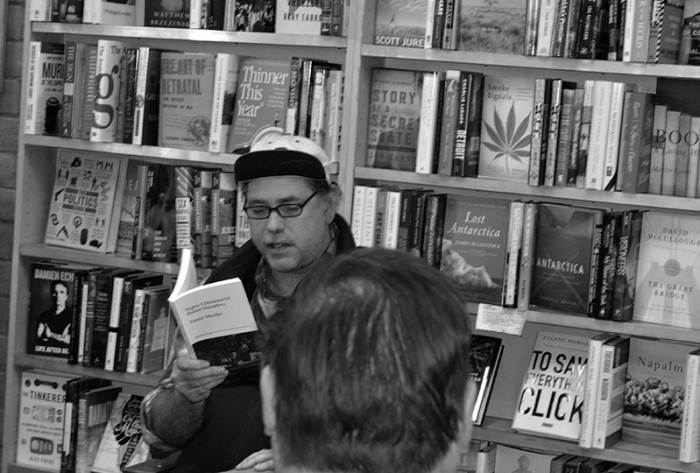
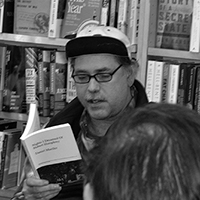 Daniel Mueller is the author of two collections of short stories, How Animals Mate (Overlook Press 1999), which won the Sewanee Fiction Prize, and Nights I Dreamed of Hubert Humphrey (Outpost 19 Books 2013). His work has appeared in numerous magazines and journals, including The Iowa Review, The Missouri Review, Story Quarterly, The Cincinnati Review, Prairie Schooner, CutBank, Joyland, Surreal South, Another Chicago Magazine, The Mississippi Review, Story, The Crescent Review, and Playboy. He is the recipient of fellowships from the National Endowment for the Arts, Massachusetts Cultural Council, Fine Arts Work Center in Provincetown, Henfield Foundation, University of Virginia, and Iowa Writers’ Workshop. He directs the creative writing program at University of New Mexico and serves on the creative writing faculty of the Low-Residency MFA Program at Queens University of Charlotte.
Daniel Mueller is the author of two collections of short stories, How Animals Mate (Overlook Press 1999), which won the Sewanee Fiction Prize, and Nights I Dreamed of Hubert Humphrey (Outpost 19 Books 2013). His work has appeared in numerous magazines and journals, including The Iowa Review, The Missouri Review, Story Quarterly, The Cincinnati Review, Prairie Schooner, CutBank, Joyland, Surreal South, Another Chicago Magazine, The Mississippi Review, Story, The Crescent Review, and Playboy. He is the recipient of fellowships from the National Endowment for the Arts, Massachusetts Cultural Council, Fine Arts Work Center in Provincetown, Henfield Foundation, University of Virginia, and Iowa Writers’ Workshop. He directs the creative writing program at University of New Mexico and serves on the creative writing faculty of the Low-Residency MFA Program at Queens University of Charlotte.
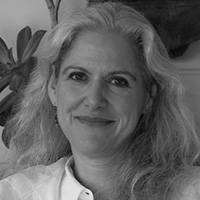 Anna Boorstin grew up riding horses, playing board games and reading. After attending Yale, she worked as a sound editor on films such as Real Genius and Clue. She raised three children and is happy to have (finally) found her way back to writing. Her story, Paper Lantern, made the Top 25 of Glimmer Train’s August 2013 Award for New Writers and was recently published in december magazine. Her Lizard Story was in Fiddleblack. She also blogs at
Anna Boorstin grew up riding horses, playing board games and reading. After attending Yale, she worked as a sound editor on films such as Real Genius and Clue. She raised three children and is happy to have (finally) found her way back to writing. Her story, Paper Lantern, made the Top 25 of Glimmer Train’s August 2013 Award for New Writers and was recently published in december magazine. Her Lizard Story was in Fiddleblack. She also blogs at 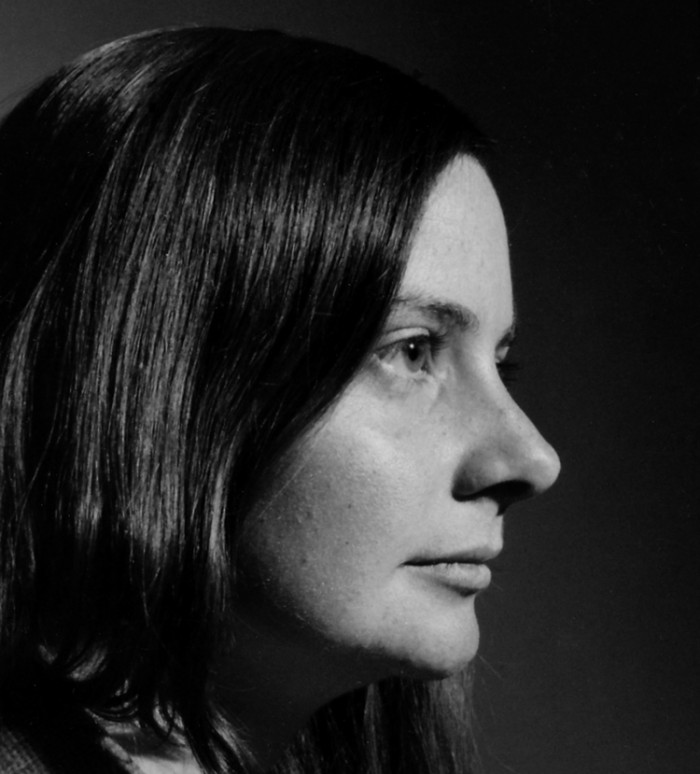
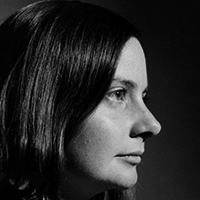 Veronica O’Halloran has taught English, Media Studies and Cultural Studies in high schools and colleges in Adelaide, Melbourne, and Los Angeles. She now lives in Cuença, Ecuador, where she is working on a book of short stories and completing a novel.
Veronica O’Halloran has taught English, Media Studies and Cultural Studies in high schools and colleges in Adelaide, Melbourne, and Los Angeles. She now lives in Cuença, Ecuador, where she is working on a book of short stories and completing a novel.
 Carmen Firan, born in Romania, is a poet, a fiction and play writer, and a journalist. She has published fifteen books of poetry, novels, essays and short stories. Her writings appear in translation in many literary magazines and in various anthologies in France, Israel, Sweden, Germany, Ireland, Poland, Canada, UK and the U.S. She lives in New York. Her recent books and publications in the United States of America include: Inferno, novella, (Spuyten Duyvil Press), Rock and Dew, (Sheep Meadow Press), Words and Flesh, (Talisman Publishers), The Second Life (Columbia University Press), The Farce, (Spuyten Duyvil Press), In The Most Beautiful Life, (Umbrage Editions), The First Moment After Death (Writers Club Press). She is a member of PEN American Center and the Poetry Society of America and serves on the editorial boards of the international magazines Lettre Internationale (Paris-Bucharest) and Interpoezia (New York). She is the co-editor of Naming the Nameless (An Anthology of Contemporary American Poetry), Stranger at Home, Poetry with an Accent, Numina Press, and Born in Utopia (An Anthology of Romanian Modern and Contemporary Poetry), Talisman Publishers.
Carmen Firan, born in Romania, is a poet, a fiction and play writer, and a journalist. She has published fifteen books of poetry, novels, essays and short stories. Her writings appear in translation in many literary magazines and in various anthologies in France, Israel, Sweden, Germany, Ireland, Poland, Canada, UK and the U.S. She lives in New York. Her recent books and publications in the United States of America include: Inferno, novella, (Spuyten Duyvil Press), Rock and Dew, (Sheep Meadow Press), Words and Flesh, (Talisman Publishers), The Second Life (Columbia University Press), The Farce, (Spuyten Duyvil Press), In The Most Beautiful Life, (Umbrage Editions), The First Moment After Death (Writers Club Press). She is a member of PEN American Center and the Poetry Society of America and serves on the editorial boards of the international magazines Lettre Internationale (Paris-Bucharest) and Interpoezia (New York). She is the co-editor of Naming the Nameless (An Anthology of Contemporary American Poetry), Stranger at Home, Poetry with an Accent, Numina Press, and Born in Utopia (An Anthology of Romanian Modern and Contemporary Poetry), Talisman Publishers. 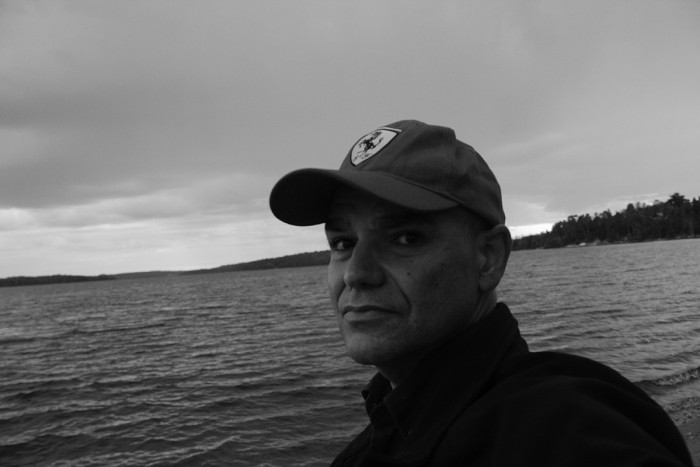
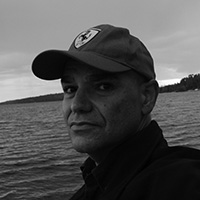 Born and raised in Sioux Lookout, in northwestern Ontario, John Tavares is the son of Portuguese immigrants from Sao Miguel, Azores. He graduated from social sciences at Humber College and journalism studies at Centennial College. His previous publications include Blood & Aphorisms, Plowman Press, Green’s Magazine, Filling Station, Whetstone (Canada), Broken Pencil, Tessera, Windsor Review, Paperplates, The Write Place at the Write Time, The Maple Tree Literary Supplement, Gertrude, Turk’s Head Review, Outside In Literary & Travel Magazine, Bareback Magazine, Rampike, and The Writing Disorder. Moreover, he had about a dozen short stories as well as creative nonfiction published in The Siren, a college newspaper. He has had articles published in East York Observer, East York Times, Beaches Town Crier, The East Toronto Advocate, Our Toronto as well as community and trade publications such as York University’s Excalibur and Hospital News, where he interned as an editorial assistant. He broadcast a set of his short stories as a community radio broadcaster for CBLS in Sioux Lookout one summer. He has recently written a novel and is an avid photographer. Having acquired an Honours BA, Specialized, in English at York University, he has returned to his hometown of Sioux Lookout.
Born and raised in Sioux Lookout, in northwestern Ontario, John Tavares is the son of Portuguese immigrants from Sao Miguel, Azores. He graduated from social sciences at Humber College and journalism studies at Centennial College. His previous publications include Blood & Aphorisms, Plowman Press, Green’s Magazine, Filling Station, Whetstone (Canada), Broken Pencil, Tessera, Windsor Review, Paperplates, The Write Place at the Write Time, The Maple Tree Literary Supplement, Gertrude, Turk’s Head Review, Outside In Literary & Travel Magazine, Bareback Magazine, Rampike, and The Writing Disorder. Moreover, he had about a dozen short stories as well as creative nonfiction published in The Siren, a college newspaper. He has had articles published in East York Observer, East York Times, Beaches Town Crier, The East Toronto Advocate, Our Toronto as well as community and trade publications such as York University’s Excalibur and Hospital News, where he interned as an editorial assistant. He broadcast a set of his short stories as a community radio broadcaster for CBLS in Sioux Lookout one summer. He has recently written a novel and is an avid photographer. Having acquired an Honours BA, Specialized, in English at York University, he has returned to his hometown of Sioux Lookout.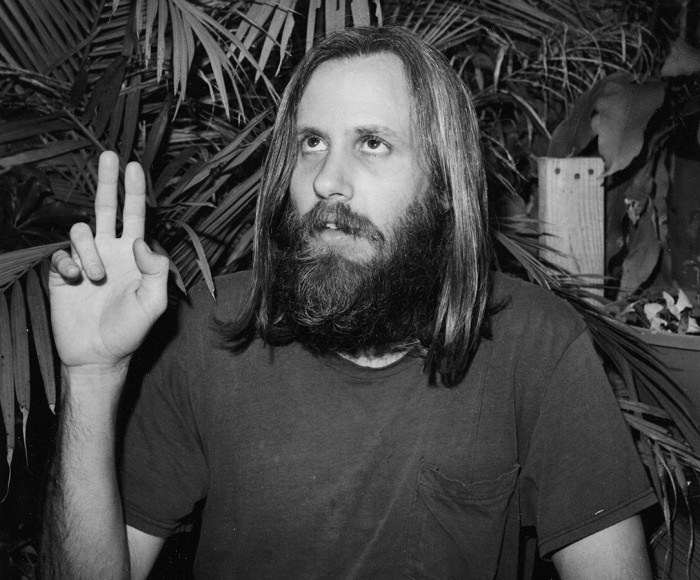
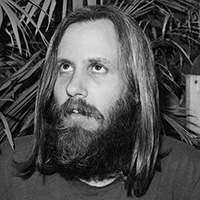 John Oliver Hodges has published two books of fiction: The Love Box and War of the Crazies. He lives in Brooklyn, and teaches writing at Montclair State University in New Jersey. “Ethel’s Mountain” is his second story to appear in The Writing Disorder.
John Oliver Hodges has published two books of fiction: The Love Box and War of the Crazies. He lives in Brooklyn, and teaches writing at Montclair State University in New Jersey. “Ethel’s Mountain” is his second story to appear in The Writing Disorder.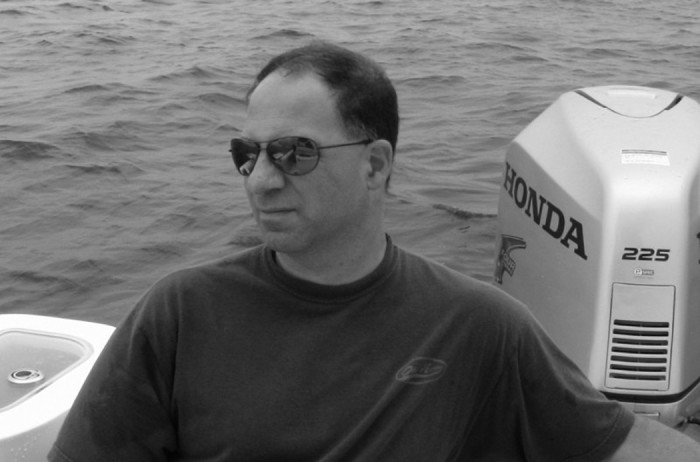
 Lou Gaglia’s work has appeared in The Cortland Review, The Oklahoma Review, The Brooklyner, Prick of the Spindle, Waccamaw, Eclectica, Amsterdam Quarterly, The Hawai’i Review, and elsewhere. His collection of short stories, Poor Advice, will be available from Aqueous Books in 2015, and his story, “Hands” was runner-up for storySouth’s 2013 Million Writers Award. He teaches in upstate New York after many years as a teacher in New York City.
Lou Gaglia’s work has appeared in The Cortland Review, The Oklahoma Review, The Brooklyner, Prick of the Spindle, Waccamaw, Eclectica, Amsterdam Quarterly, The Hawai’i Review, and elsewhere. His collection of short stories, Poor Advice, will be available from Aqueous Books in 2015, and his story, “Hands” was runner-up for storySouth’s 2013 Million Writers Award. He teaches in upstate New York after many years as a teacher in New York City.











